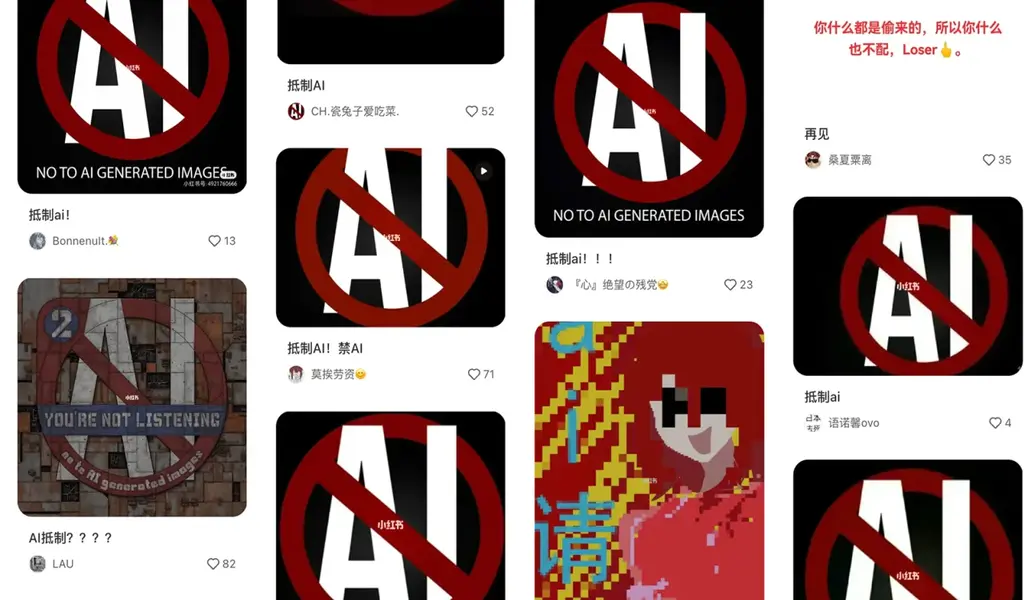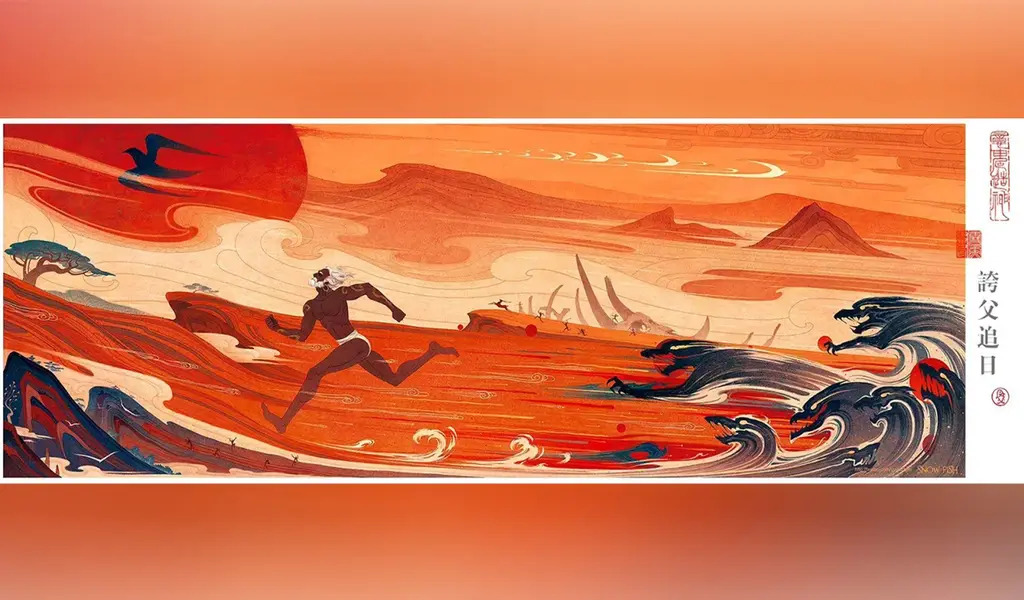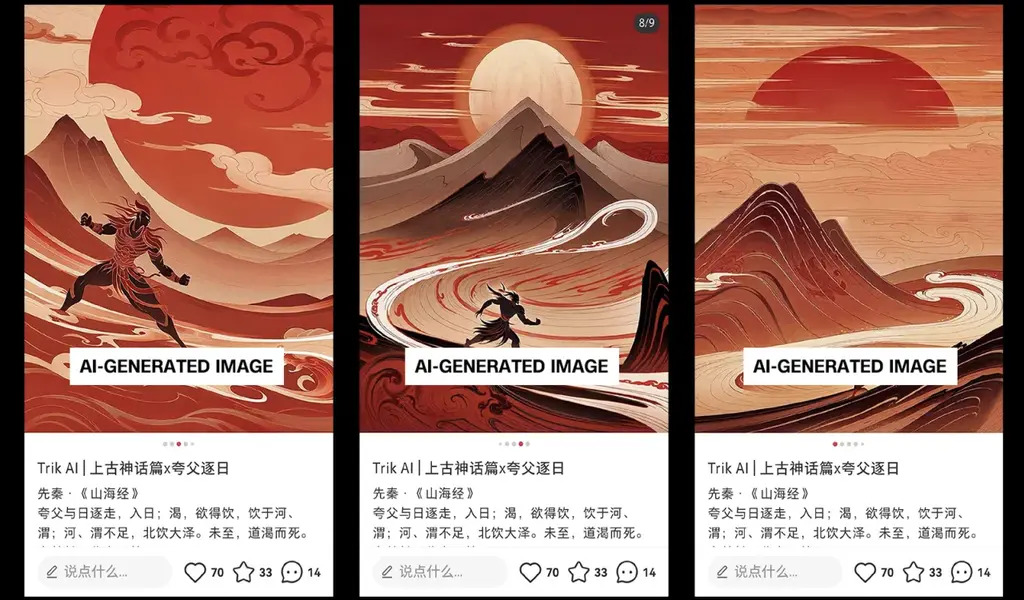News
Chinese Artists Boycott Social Media Platform Over Unauthorized AI Artwork

(CTN News) – In a country where artistic expression has a rich and diverse history, Chinese artists have recently found themselves embroiled in a heated controversy surrounding the use of AI-generated images without their consent.
Xiaohongshu, one of China’s largest social media platforms, has come under fire for allegedly using artists’ work to train its AI image generation tool, Trik AI.
This blog post delves into the unfolding story, exploring the artists’ grievances, the implications for AI in the arts, and the wider regulatory landscape.
The Accusation
The controversy began in August when an illustrator known as Snow Fish accused Xiaohongshu of using her artwork to train Trik AI without her knowledge or permission.
Snow Fish, known for her distinct style of traditional Chinese paintings, became aware of the issue when friends sent her posts from the platform that closely resembled her own creations.
Her followers and the artist community rallied behind her as she publicly confronted Trik AI, demanding an explanation for the striking similarities between her original works and the AI-generated images.
Government Regulations and Silence from Xiaohongshu
This controversy unfolded just weeks after China unveiled regulations for generative AI, becoming one of the first countries to address the technology’s potential impact on intellectual property and creative industries.
However, both Trik AI and Xiaohongshu have remained tight-lipped regarding the allegations and have not disclosed what materials were used to train the program. Multiple requests for comments from CNN have gone unanswered.
Snow Fish’s Quest for a Public Apology
While a person using the official Trik AI account privately apologized to Snow Fish and agreed to remove the contested posts, the artist is demanding a public apology.
Her cause has sparked online protests against the use of AI-generated images in China, with numerous artists coming forward with similar complaints.
Hundreds of artists have posted banners on Xiaohongshu under the slogan “No to AI-generated images,” and a related hashtag on Weibo has garnered over 35 million views.
Global Implications
The boycott on Xiaohongshu reflects a broader global debate about the role of AI in arts and entertainment. In the United States, for instance, writers and actors have halted film and television production over concerns about AI’s impact on creative industries.
Artists worldwide are calling for better rules to safeguard their work online as AI development outpaces regulation efforts.
The Issue of Consent and Credit
For many artists, the issue lies not with AI technology itself but with its use of their work without permission or credit.
AI models often scrape images of artists’ creations from the internet without consent or compensation, leading to concerns about intellectual property rights. These concerns had simmered within the artist community but have now erupted into a full-scale boycott.
The Debate Over “Real” Art
The controversy also raises questions about what constitutes “real” art and how to preserve its “spiritual value.” Some artists argue that AI-generated art lacks the authenticity and emotional depth found in human-created works.
AI Global Regulatory Challenges
Despite the rapid development of AI image generation tools, there is no global consensus on regulating such practices. Tech giants, with their vast databases, can easily evade regulations.
However, Trik AI’s smaller database made the similarities between AI-generated content and artists’ original works more apparent, potentially leading to legal action.
Governments worldwide are grappling with how to set global standards for AI technology.
The European Union and the United States have started discussions on AI regulations, but China’s approach prioritizes centralizing power from tech giants and maintaining a competitive edge in the global tech race.
Conclusion
The Xiaohongshu boycott by Chinese artists highlights the growing concerns surrounding AI’s impact on the creative industry. While governments are working to regulate AI, the rights of individual artists remain a focal point in this debate.
As technology continues to evolve, artists and policymakers alike must find common ground to protect creative expression while embracing the benefits of AI innovation.
The Xiaohongshu controversy serves as a critical case study in this ongoing struggle for balance and fairness in the digital age.































